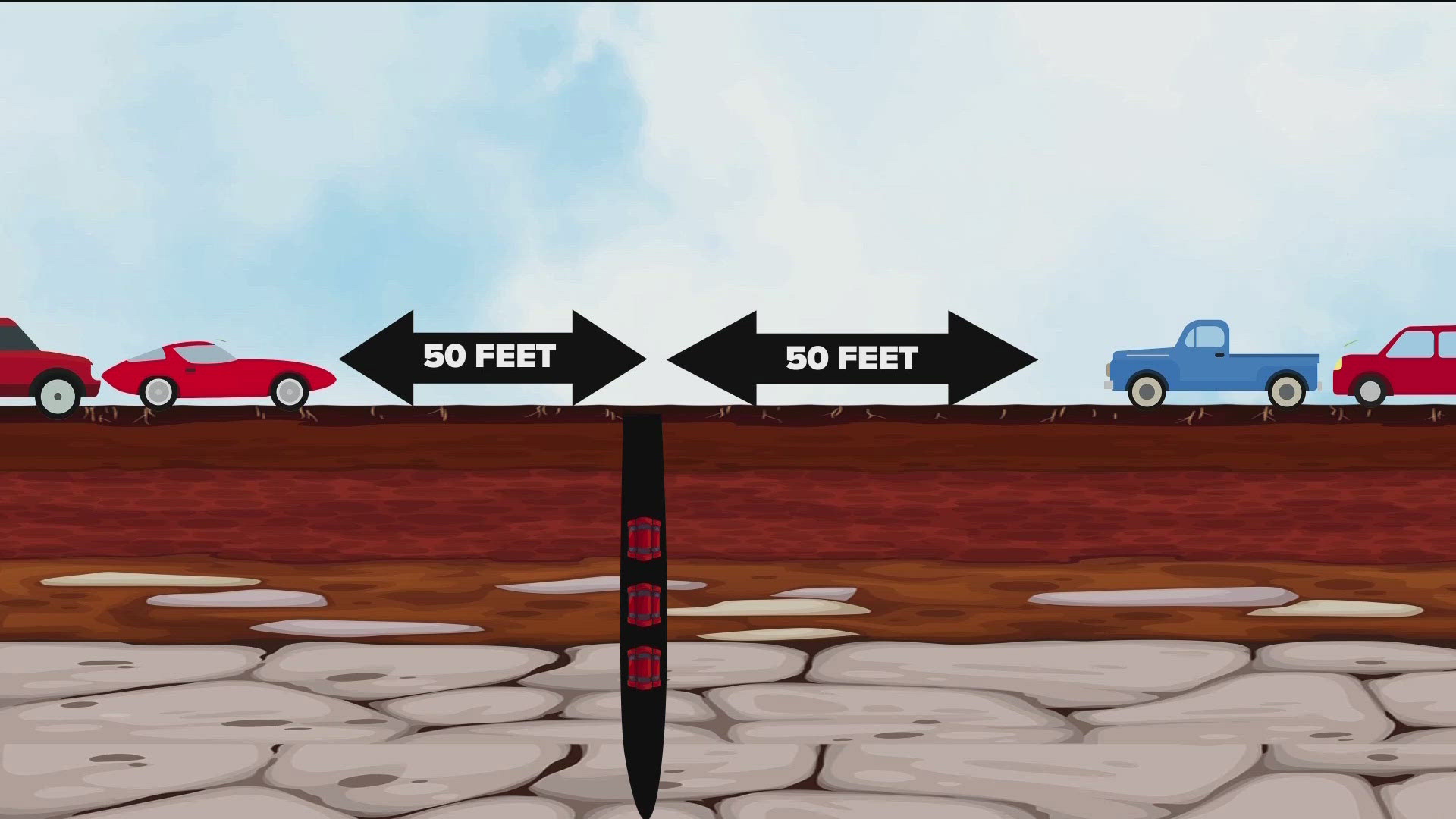ATLANTA — Commuters using Interstate 20 in Dekalb County may feel the earth move under their tires as work to expand the interstate turns to explosives.
In addition to overhauling the interchange of I-20 and I-285, Georgia Department of Transportation crews are adding auxiliary lanes from the perimeter to Lithonia Industrial Boulevard.
There are spots that are proving to be a geological challenge. Underground rock is hindering construction. For two months, crews will briefly pause traffic along I-20 for blasting.
“There is a 15 minute window that they can hold traffic in that area,” said GDOT’s Natalie Dale. “They’re not supposed to hold traffic any longer than that, but it can create a traffic backup.”
Crews drill into the earth, typically about 15 feet beneath the surface, to reach a layer of rock that impedes drainage needed beneath a new lane. They then place explosives there.
Traffic briefly comes to a halt and is kept at least 50 feet from the blast site before the rock becomes rubble.
Crews add a layer of sand to control the blast and contain the energy. For safety, the blasting has to take place during the day, between 1 p.m. and 3 p.m., Monday through Thursday.
“It doesn’t mean they’ll be blasting every day but they have the ability to do that,” said Dale.
For eight weeks, I-20 will be having a blast even when drivers aren’t.
For rock blasting, the crews drill holes into the rock—they’re not big holes, about 3.5” in diameter—and, with the help of a highly qualified, certified subcontractor, determine the number of explosives needed to clear rock out of a particular space. In total, about 50 holes will be drilled at an average of 15’ below the surface for blasting. Crews place stemming, which is a rock or sand material, on top of 1.5 lb – 3 lb cubic yards of explosive charges to help contain the energy of the explosive and control the blasting.
For safety and to effectively manage the debris that needs to be removed, this work is planned over a span of several days. Critical other safety measures include:
• All work stops on the project site while blasting is conducted
• Coordination with DeKalb fire is arranged, including having their crews on site
• Any vehicle or pedestrian traffic is held to keep the public outside of 50’+ of the blasting area
Once crews determine proper blasting has taken place, the “all clear” signal is given for crews to return to work and travel activities resume.
Weather permitting, the Georgia Department of Transportation (Georgia DOT) construction partners will temporarily close interstate lanes at the locations below for the Interstate 285/I-20 East Interchange project. The project will reconstruct the interstate system-to-system ramps at the I-285/I-20 East Interchange and add a combination of collector-distributor, or connecting lanes, and auxiliary lanes along I-20 east of the interchange and I-285 north of the interchange.
Georgia Department of Transportation construction partners will pace traffic on I-20 eastbound and westbound to perform the controlled blasting of rock. The blasting will take place along I-20 eastbound and westbound beginning this week between 1 p.m. and 3 p.m. The blasting work and traffic pacing may occur weekdays, Monday through Thursday, for approximately 8 weeks and are necessary to allow contractors to continue construction of the new westbound auxiliary lane.
Traffic will be held at the following locations for up to approximately 15 minutes. That's a controlled explosion. The DOT is blasting massive layers of granite to make room for a new bridge over State Route 3-16.
DOT workers drill holes in the granite to place the explosive charges. Then, they cover the area with 20 feet of dirt to muffle the sound and keep rocks from flying everywhere. But that doesn't stop the sound—people all around the area hear the blasting.
Luckily, there's only one more blast, and it's scheduled for sometime next week.

